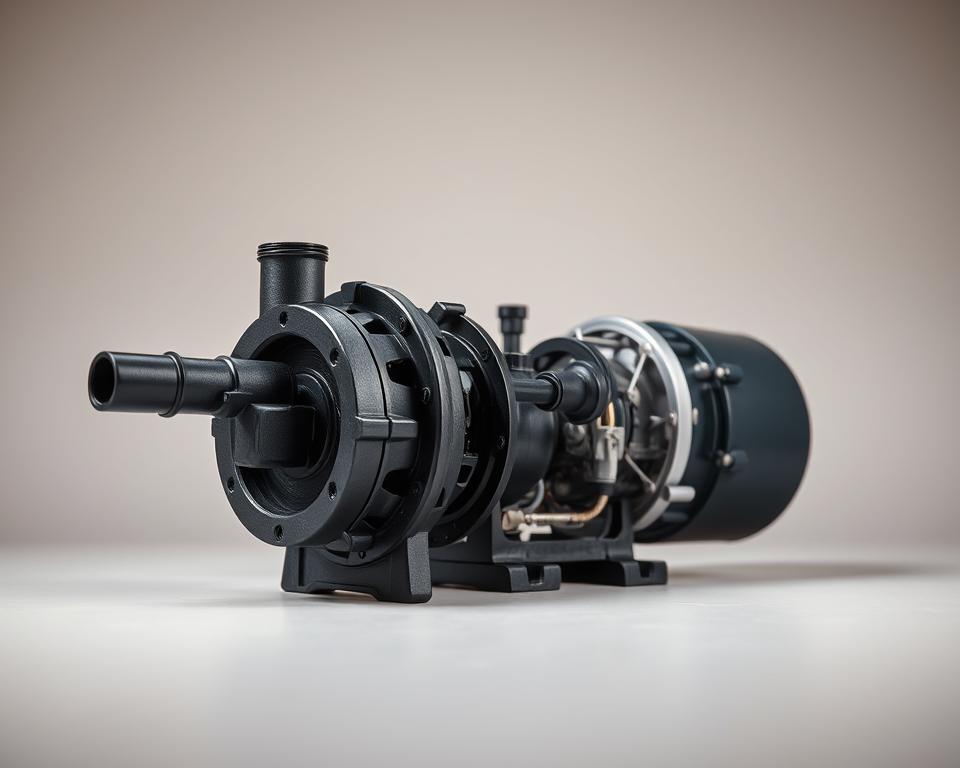Must-Know RV Septic Tank Service Care Tips
Curious about what goes on to your RV’s Septic tank while you’re rolling down the highway? It’s about more than steering clear of nasty odors. Keeping your RV Septic tank properly serviced helps secure smooth travels. A well-maintained system prevents messy mishaps and costly fixes. Yet, many overlook this critical care. Through this guide, we break down the need for regular RV black water pump. We’ll spotlight why maintenance matters and share tips for servicing your recreational vehicle’s Septic tank. Get ready for trouble-free journeys!
Essential Summaries
- Scheduled RV Septic tank service is critical for optimal performance.
- Understanding your RV Septic system enables you to avoid costly repairs.
- Proactive maintenance prevents unpleasant odors and clogs.
- Set a pumping schedule matched with your usage.
- Employ best practices for dumping your holding tanks.
- Avoid common mistakes to prolong the life of your Septic system.
- Know when to seek professional help for Septic services.
Understanding RV Septic Systems
An RV Septic system is essential for any camper. It houses multiple holding tanks that handle waste effectively. You’ll find three critical tanks in an RV: the fresh water, the gray, and the black tank. The fresh water tank provides clean water for drinking and cooking. Meanwhile, the gray tank holds wastewater from sinks and showers, ensuring cleanliness. The black tank, specifically for toilet waste, also has a vent to minimize odors.
Keeping a healthy camper sewage system demands recognizing how these parts work together. Frequent checks of the tank levels are vital to prevent overflow and ensure everything runs without a hitch. Getting to know the termination valves is important too. These valves are central in effectively handling waste disposal. By familiarizing yourself with these components, you can keep your RV in great shape and relish your travels without unwanted hassles.
| Reservoir | Role | Typical Size |
|---|---|---|
| Fresh Water Tank | Supplies drinking and cooking water | 30-100 gallons |
| Gray Tank | Stores wastewater from sinks and showers | 30-60 gallons |
| Black Tank | Stores toilet waste | 30-50 gallons |
Benefits of Regular RV Septic Tank Service
Regular RV Septic tank service is imperative to keeping your system effective and long-lasting. Without timely maintenance, you could face system failures, bad smells, and pricey repairs—issues that interrupt your adventures.
Overlooking the upkeep of your RV’s Septic system may cause it to back up. This not only impacts your RV’s function but also your comfort levels. A clean and maintained system is essential for smooth trips, offering you a peaceful travel experience.

Ongoing maintenance prolongs your sewage system’s lifespan and preserves a clean living space. Watching your Septic tank allows you spot issues early. This proactiveness cuts costs and stress, granting you confidence during your journeys.
How Often to Pump Your RV Septic Tank
Identifying the right schedule for RV Septic tank maintenance depends on the vehicle’s usage. For those regularly on the road or living in their RVs, it’s advised to drain the black tank every three-to-five days. This practice keeps cleanliness and avoids unexpected issues during voyages.
Weekend adventurers can generally wait until they return home to pump their Septic tank. Letting waste in the tank too long, though, can cause build-up that hinders the tank’s function and smell control. It’s crucial to watch the tank’s level closely, preparing for disposal once it hits around two-thirds full to keep everything running properly.
The capacity of your Septic system, along with how you use your RV, will guide when to pump. Being aware of these aspects enhances your RV’s performance and cuts the dangers of poor waste management.
| Travel Style | Suggested Drain Schedule | When to Pump Right Away |
|---|---|---|
| Frequent Usage | Every 3-5 days | Level reads 2/3 |
| Weekend Trips | After return home | Unpleasant odors or sluggish flow |
| Extended Trips | Every 2-3 days | Gauge shows near full |
Best Practices for Emptying RV Holding Tanks
Efficiently managing a recreational vehicle’s holding tanks is key for a comfortable camping experience. Start by draining the black tank first. This approach allows the gray water to flow through and rinse out the hose. Be sure the use of a high-quality sewer hose for a solid connection and to reduce spills. Once the tanks are emptied, fully flushing the black tank is crucial. Using a built-in black tank flush or comparable alternatives can significantly reduce residue.
After the emptying process, it’s vital to close both valves firmly. This action is important to maintain a fully operational Septic system. Additionally, RV owners must rely on dump stations properly and adhere to local laws. Routine cleaning practices for recreational vehicle Septic tanks are necessary. They maintain the system’s optimal functionality and prevent future odors.
Preventing Odors and Clogs in Your RV
To tackle odors and prevent clogs in your RV, being meticulous is key. The task begins with verifying enough water in the holding tanks. Adequate water aids in breaking down waste efficiently, cutting bad smells.
Choosing suitable toilet paper is essential in this process. Opt for RV-safe toilet paper that disintegrates quickly, avoiding clogs. This small adjustment considerably aids in maintaining seamless waste flow.
Employing enzyme-based treatments can further improve waste decomposition and odor control. These eco-friendly solutions aid keep your RV smelling fresh. It’s also important to regularly inspect vent pipes for obstructions to ensure good airflow and block odors from infiltrating your living area.
RV Septic Maintenance: Mistakes to Avoid
Keeping your RV’s Septic system the right way is vital for its efficiency and longevity. When non-biodegradable items like wipes or feminine products are flushed, they can cause major blockages. These blockages can result in various problems that are challenging to resolve.
Not using enough water when flushing can also harm the system. It causes waste buildup, resulting in bad odors and potential damage. Furthermore, a common mistake at full hook-up sites is leaving the black tank valve open. This causes waste to pool at the tank’s bottom.
Preventive measures entail regularly flushing and rinsing tanks after emptying them. Ignoring maintenance can grow into significant issues requiring expensive repairs. Being proactive and knowledgeable helps both your RV and your finances.
Signs You Need Professional RV Septic Help
Understanding when to seek professional RV Septic services is crucial for preserving a healthy Septic system. Some signs signal the need for expert intervention. If you notice slow-draining tanks or get persistent foul odors coming from your RV, it is wise to act promptly. These signs often indicate underlying issues that demand a thorough Septic tank service for resolution.
Visible leftover waste after emptying can also reveal problems within your Septic system. This situation may not fix with routine maintenance and may necessitate the use of specialized equipment. Professionals are ready to tackle complex challenges via tools, such as high-pressure water jets, to deliver a comprehensive cleaning process.
Timely professional assistance can make a significant difference. Small problems can rapidly turn into more severe complications without proper care. Investing in professional RV Septic services preserves the integrity of your system and lengthens its lifespan.
| Signs of Trouble | Recommended Action |
|---|---|
| Slow draining tanks | Contact professional RV Septic services for assessment |
| Persistent foul odors | Schedule Septic tank service for diagnostics |
| Visible leftover waste | Seek immediate assistance from a professional |
| Frequent clogs | Consider expert cleaning solutions |
Long-Term Care for Your RV Septic System
Long-term care for RV Septic systems calls for attention in addition to basic pump-outs. Performing deep cleaning of tanks every few months stops buildup and lengthens system life. Examining dump valve seals on schedule prevents leaks. Additionally, sanitizing the system maintains it clean and functioning well.
It’s vital to monitor tank sensors to confirm they work correctly. Incorrect readings may lead to over-filling, hurting performance. Regular sensor checks and tweaking maintenance schedules can prevent this problem.
| Action | Interval | Why It Helps |
|---|---|---|
| Deep Cleaning Tanks | Every 3-6 months | Stops residue accumulation |
| Inspect Dump Valve Seals | Monthly | Reduces risk of leaks |
| Sanitize System | Every 6 months | Keeps odors down |
| Monitor Tank Sensors | Monthly | Prevents over-fill |
Preventive maintenance is vital to your RV Septic system’s long-term health. It creates enjoyable and trouble-free travel experiences.
All In Sanitation: Trusted RV Septic Partner
All In Sanitation stands out at crafting RV Septic services that fit each client’s unique needs. Whether it’s scheduled pump-outs or comprehensive tank cleaning, they understand the essential role of a well-functioning Septic system in your RV’s performance.
Boasting extensive expertise in RV Septic systems, All In Sanitation offers top-tier guidance on maintenance and care. Their team is well-versed in the specific challenges RV owners meet and offers effective solutions when troubles arise.
Selecting All In Sanitation enables RV enthusiasts fully engage in their journeys, entrusting Septic concerns to a dependable ally. Their dedication to excellent service brings confidence and enhances the pleasure of adventures on the open road.
As a Final Point
Looking after your RV Septic tank is critical for smooth travels. It’s crucial to grasp your system and stay on top of regular services. This ensures you won’t face unexpected issues on your journey. These key steps involve frequent pumping and using sound waste management practices.
Thorough long-term care holds your system in top shape. By using the provided maintenance tips, you can enhance your travel experience. This approach helps avoid expensive repairs later. Bear in mind, avoiding common errors and recognizing when to seek professional help are important.
Ultimately, being ahead of the curve in your RV Septic system’s maintenance guarantees a stress-free adventure. It enables you to focus on creating lasting memories. So, take these steps to heart and enjoy your road trips to their fullest.


